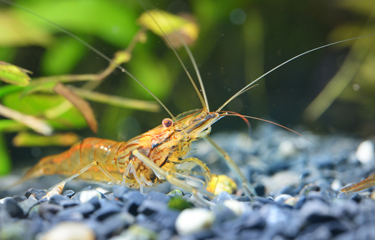The Aquaculture Stewardship Council (ASC) has released two new updates in its shrimp standard with the goal of broadening the reach of the program.
ASC is an independent, not-for-profit organization that was co-founded in 2010 by the World Wildlife Fund (WWF) and the Sustainable Trade Initiative (IDH) to manage certification of responsible fish farming across the globe. The ASC’s shrimp standard is a certification process to ensure responsible farming that encourages seafood producers to minimize key environmental and social impacts of shrimp aquaculture, include challenges to biodiversity of neighboring ecosystems, full traceability in wild fish in feed, measurement of pollution, minimization of disease outbreaks, restricted use of antibiotics, and prohibition of forced labor or child labor.
A revised version of the shrimp standard has been released that includes new updates and requirements to recirculating aquaculture system (RAS) farms and the addition of new shrimp species. The revision adds four new genera of freshwater species – cherax, procambarus, astacus, and macrobrachium – so that 99 percent of globally farmed shrimp are covered by the scope of the standard.
The addition of these species allows freshwater crayfish and freshwater shrimp farmers to now work towards ASC’s requirements for responsible farming, according to ASC Director of Standards and Science Michiel Fransen.
“This revision spreads the potential positive impact of ASC by enabling more farmers to apply for certification, which requires both environmental and social responsibility,” Fransen said in a press release. “ASC’s shrimp standard now includes almost all global shrimp production within its scope. Given the benefits of certification – to farmers, workers, the environment, and local communities – that can only be a good thing.”
Although a small minority in aquaculture, RAS farms are growing in popularity and have unique impacts that the ASC revisions are taking into account. RAS farms use recirculation and filtration systems to simulate a natural environment in order to enable the farming of fish in contained facilities that can be placed on land. Greater flexibility in a farm site and reduction of risk of escape or disease transmission to wild populations of fish are potential positive impacts of this method of farming but other potentially negative impacts can come from challenges including energy, water use, and effluent disposal.
In order to combat that, ASC has developed a RAS module that includes new requirements that apply specifically to RAS farms. Requirements such as monitoring of energy use, developing strategies to reduce emissions, and minimizing negative impacts on water resources. To achieve ASC certification, RAS farms will have to meet the requirements of the RAS module, as well as the ASC standard covering the species they are farming.
“Aquaculture is a fast-moving, innovative industry. This means we have to continuously review and adapt the ASC program to make sure we’re still reflecting the industry, and current best practices. RAS farming, like all farming, has particular impacts,” Fransen said. “At ASC, we don’t believe one method of farming is inherently superior – we think what matters is the specific impacts are properly addressed and minimized.”
This revision of the shrimp standard is part of ASC’s commitment to constant improvement and collaboration, as all of ASC’s standards are periodically revised and updated by multi-stakeholder teams of experts that take into account public feedback, it said.
Now that these requirements are public, there will be a six-month period before both new updates are live and mandatory to give farmers and auditors the chance and time to familiarize themselves with the changes and additions.
Photo courtesy of Alex Stemmers/Shutterstock







